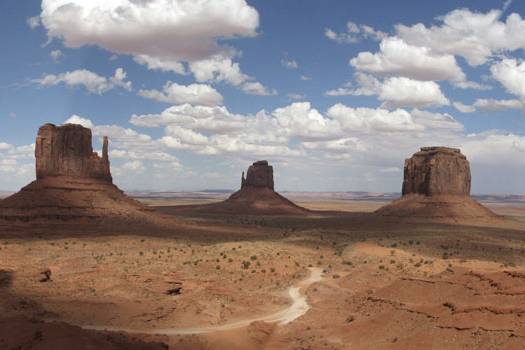Prospective Geology and Geophysics Students
Geoscientists apply the principles of chemistry, physics, mathematics, and biology to understand the composition, structure, and history of the Earth and the processes that govern it. Our students use this knowledge to address societal needs and problems, such as locating and characterizing mineral, energy, and groundwater resources, assessing seismic and other geologic hazards, and evaluating and remediating environmental contamination.
Are you interested in studying the geosciences at the University of Utah? Apply today and declare your major in Geology & Geophysics!
Geology & Geophysics Degree Paths
We recommend meeting with an Undergraduate Student Advisor

Geology and Geophysics Undergraduate Academic Advisor
Kelsie Richards
Prospective students Book Here
Email: kelsie.richards@utah.edu
Earth and Environmental Science (EES)
Contact Mone Easthope
Email: simon.easthope@utah.edu
FAQ
Do I need to apply to the program?
- You do not need to apply to the program; simply declare your major with our advisor! All of the department’s majors are open in the sense that a student does not need to pre-qualify to declare a major in the department.
- If you wish to declare a major in our department and/or if you have specific questions about our programs, please contact the academic advisor above.
What will my degree path look like?
- We recommend meeting with the academic advisor for your major to discuss what is required to earn your B.S. degree, including general education courses and department courses. Your advisor can help you build a semester-by-semester plan and help you decide which degree path to take.
- View our majors for insight into what your degree path may look like.
When should I meet with my Academic Advisor?
- At certain milestones in your academic career, you will be required to connect with your academic advisor. You will have a hold placed, preventing you from registering for future semesters, until you connect with your academic advisor.
- Advisors can answer questions related to your degree, courses, scheduling, leave of absence, graduation requirements, academic standing, etc. They are here to help you however they can!
- Academically challenged students: Students are required to maintain a 2.0 cumulative GPA in order to remain in “good standing” at the University of Utah. Students whose cumulative GPA drops below 2.0 should meet with their academic advisor right away in order to implement a productive strategy for improving their academic performance.
- Graduating seniors: Students applying for graduation must meet with their academic advisor.
Where can I find scholarship information?
- The Department of Geology and Geophysics, along with the College of Science, offers incoming and continuing undergraduate student scholarships. Click here to view all scholarship and financial aid opportunities.
I plan to transfer to the U. What should I do?
- Whether you are preparing to transfer to the U or have already made the leap, we want to make sure your experience is as smooth as possible. Visit the Transfer Website for all things related to transfer students and the transfer process. You are also welcome to meet with our academic advisor to discuss plans.









